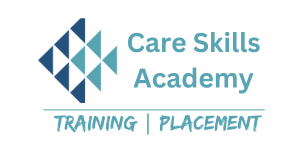Air conditioning systems are a vital part of modern life, providing comfort in homes, offices, and industrial settings. As the demand for efficient cooling continues to grow, so does the need for skilled technicians who can install, maintain, and repair these systems. An AC repairing course is the perfect opportunity to gain the knowledge and skills required to excel in this field, opening doors to various career opportunities in the HVAC (Heating, Ventilation, and Air Conditioning) industry.
Why Enroll in an AC Repairing Course?
AC repairing is a specialized skill that requires a solid understanding of electrical systems, refrigeration cycles, and mechanical components. Whether you’re a beginner looking to start a new career or a professional seeking to upgrade your skills, an AC repairing course provides comprehensive training that will equip you with the expertise needed to handle different types of air conditioning units.
The HVAC industry is growing rapidly, driven by increasing urbanization, climate change, and technological advancements in cooling systems. Skilled AC technicians are in high demand across residential, commercial, and industrial sectors, making this a lucrative career option. By completing an AC repairing course, you position yourself for success in a field with vast job opportunities and potential for growth.
What You Will Learn in an AC Repairing Course
A well-structured AC repairing course covers a range of topics, giving you both theoretical knowledge and practical skills. Here are some key areas you can expect to learn:
- Basics of Refrigeration and Air Conditioning
- Understand the fundamentals of the refrigeration cycle, including concepts like heat transfer, cooling, and the role of refrigerants in the air conditioning process.
- Types of Air Conditioning Systems
- Learn about different types of AC units, including window ACs, split systems, central air conditioning, and portable units. Each type has its own setup, and knowing the differences is essential for proper installation and maintenance.
- Electrical Components and Wiring
- Get hands-on training in working with the electrical components of AC units, such as compressors, capacitors, contactors, and circuit boards. Understanding how to safely handle wiring and electrical systems is crucial for any AC technician.
- Troubleshooting and Diagnostics
- Learn how to diagnose common AC problems like insufficient cooling, refrigerant leaks, compressor issues, and electrical faults. Developing strong troubleshooting skills is key to identifying issues quickly and providing effective solutions.
- Installation Techniques
- Gain knowledge on the proper installation of different types of air conditioning systems, ensuring that they operate efficiently and safely. Correct installation prevents future issues and increases the lifespan of the unit.
- Maintenance and Repair
- Master routine maintenance tasks like cleaning filters, checking refrigerant levels, inspecting coils, and ensuring the overall health of the system. Regular maintenance is essential to keep AC units running smoothly and efficiently.
- Advanced Skills: HVAC Controls and Automation
- Explore the latest advancements in HVAC technology, including smart thermostats, automated controls, and energy-efficient systems. Learning about modern HVAC controls will give you a competitive edge in the market.
Benefits of Taking an AC Repairing Course
- Hands-On Training
- One of the biggest advantages of an AC repairing course is the hands-on experience you get with real equipment. Practical training helps you develop the skills needed to handle actual repair and maintenance tasks confidently.
- Career Opportunities
- Completing this course opens up a wide range of career opportunities. You can work as an HVAC technician, join a maintenance team, or even start your own AC repair business. The demand for skilled professionals in this field continues to rise.
- High Earning Potential
- HVAC technicians earn a competitive salary, with opportunities to increase their income through overtime, specialized services, or running their own business. As your experience grows, so do your earning possibilities.
- Professional Growth
- The HVAC industry offers numerous pathways for professional development. From advanced certifications to specialized training in commercial HVAC systems, you can continuously expand your knowledge and enhance your career prospects.
- Sustainability and Energy Efficiency
- Modern AC systems are becoming more energy-efficient and environmentally friendly. By understanding these innovations, you can help customers save on energy costs and contribute to a greener future.
Who Should Enroll in an AC Repairing Course?
This course is perfect for:
- Aspiring Technicians: Individuals who want to enter the HVAC industry with a strong foundation in AC repair skills.
- Professionals: Technicians who want to upgrade their skills and stay updated with the latest trends and technology in air conditioning systems.
- Entrepreneurs: Individuals looking to start their own AC repair or maintenance business.
- DIY Enthusiasts: Homeowners who want to learn how to maintain and troubleshoot their own AC units.
Conclusion
An AC repairing course is more than just a technical program—it’s a stepping stone to a rewarding career in a high-demand industry. With comprehensive training, hands-on experience, and guidance from industry experts, you’ll gain the confidence to excel in the field of HVAC. Whether you’re starting a new career or enhancing your existing skills, this course offers the perfect blend of theoretical knowledge and practical experience.
Don’t miss the chance to boost your career in the HVAC industry. Enroll in an AC repairing course today and become a skilled technician ready to take on the challenges of modern air conditioning systems!

